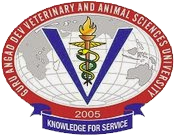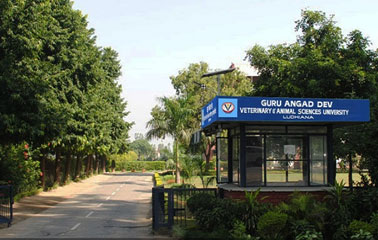

The research work in Animal Nutrition was initiated in 1958 under the dynamic leadership of Dr. G.S. Sidhu, the then State Biochemist, who later on joined as Professor and Head, Department of Chemistry and Biochemistry, when Punjab Agricultural University was established in 1962. He had keen interest in Animal Biochemistry, particularly the feeding aspects of different categories of livestock and established Animal Nutrition Centre. This centre with the addition of new laboratories formed one of the major components of Animal Science Department.
Dr. D. Sundaresan, in 1968, established Animal Nutrition Section in the Department of Animal Science and started Postgraduate classes in Animal Nutrition. Dr. J.S. Ichhponani took charge of research and teaching work and it was recognized as one of the leading Animal Nutrition Centre of the country. The center was dedicated to its' founder scientist and named as 'Gurcharan Singh Sidhu Aniaml Nutrition Center' on 25th Jan. 1983. In the year 1991, the Department of Animal Nutrition and Forages was created and Dr. J.S. Ichhponani took over the charge as Head of the Department.
In 1998, Department of Animal Nutrition was created in the College of Veterinary Sciences as per the new guidelines of Veterinary Council of India. Presently Dr. Manju Wadhwa is the head of the Department; which has 40 professors, 1 associate professors and 2 assistant professors. The department is offering courses to both the under and post-graduate students of COVSc. Teachers, from time to time, get advanced training in India and Abroad to widen their outlook and to face the challenges of the today's problems faced by farmers and feed industry.
The research activities involve work on developing feeding strategies for ruminants and poultry. The research includes; the survey of existing feeding practices followed under field/farm conditions, assessment of nutritional status of lactating animals, various methods employed in improving the nutritive value of poor quality crop residues applicable under field conditions, development and evaluation of uromin lick, nutritional evaluation of new non conventional agro industrial byproducts for livestock and poultry, development of complete feed/TMR, assessing the nutrient requirement of different categories of poultry and ruminants under different seasons, impact of various feed additives on the productive performance of livestock and poultry and feeding of high yielders during transition phase, rumen microbial diversity, mitigation of enteric methane production and use of nutrigenomics to improve productivity etc.
